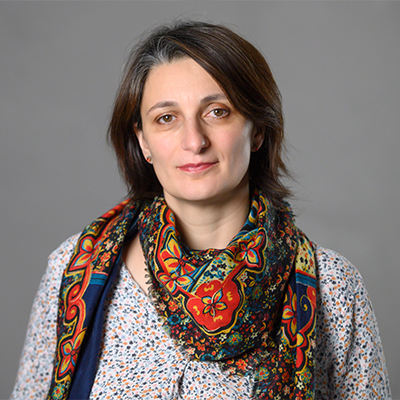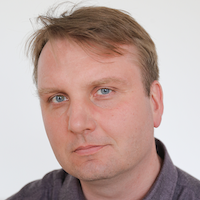Hi from Tallinn,
As I’m writing these lines, sanctioned Russian oligarch Yevgeni Prigozhin has publicly admitted to meddling in the US midterm elections.
“Gentlemen, we interfered, we are interfering, and we will interfere,” he said. That rings true as much on that side of the Atlantic as it does here in Europe.
We’ve seen it all in Estonia. We’ve had cyberattacks. We’ve had elaborate disinfo campaigns. We’ve lost count of how many Russian spies we’ve caught.
But as Russia’s criminal war against Ukraine continues to run aground and its weaponizing of energy against Europe proves increasingly ineffective, you can expect new, dirty and covert attempts to interfere with us across Europe, resulting in domestic and international tensions.
As outgoing Estonian intelligence chief Mikk Marran put it to me in a recent interview: “Russia still plans to exhaust the West because they think that the West wears out faster.”
We hope that our selection this week helps to shine some light on Russia’s sordid attempts to divide our societies and nations.
Holger Roonemaa, this week’s Editor-in-Chief
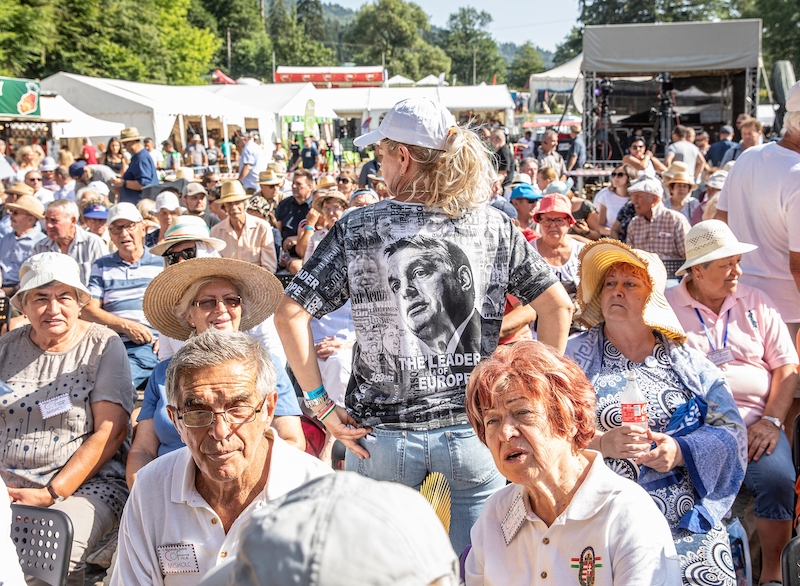
Three men caught my eye in 2014 after Hungarian Prime Minister Viktor Orbán’s annual summer speech on a sunny Transylvanian afternoon, in the spa town of Băile Tușnad (Tusványos). They were eager political pilgrims. I’ve seen a lot of strange things here, but this was really disturbing.
Orbán gives a State of the Nation address in Romania every year, targeted at the country’s 1.2 million Hungarian minority. More than 500,000 of these have dual citizenship and the right to vote in Hungarian elections. Over 90% of those voters support Orbán’s Fidesz party. Orbán’s annual litany is truly an election-decider.
The embarrassing detail was on their T-shirts: Orbán’s men wore Putin’s portrait.
Since then, the bigger picture has become clearer. The Hungarian-Russian political alliance has now blossomed. At the beginning of Russia’s war in Ukraine, this cooperation took on its own Transylvanian topicality.
This war is about minority rights – as the Hungarian voters in Transylvania are told on a daily basis by the Hungarian state media and meme factories. And Russia and Putin personally (as well as Orbán) are the real champions of these minority rights. Putin is giving the Russians back their territories.
Are Transylvania or Ukrainian Transcarpathia, also inhabited by the Hungarian minority, next? The propaganda offers no explicit promises but only floating, informal hopes.
The Romanian majority in the polls is more in favor of the Ukrainian cause. Hungarian revisionism scares them. The war between Russia and Ukraine has a Hungarian-Romanian shadow.
On a hot October evening last week here in Transylvania a Hungarian right-wing extremist announced that Hungarians must be prepared for the annexation of Transylvania, for the oppression of the Jews and the Roma, and one of the local journalists should be hanged.
Romanian reactions to this were swift and fierce. Even the Prime Minister condemned the call for murder.
The journalist who they demanded to be hanged was me. I don’t know what kind of T-shirt would protect people like me in this time of war.

Almost one in five Germans – 19% – believe that NATO provoked Russia’s war against Ukraine, according to a recent study. This is up from 12% in April.
As the study suggests, pro-Russian propaganda offers a distorted context, where the US is fundamentally denigrated and Russia is glorified. Anti-democratic actors such as the right-wing AfD party also spread disinformation to shake confidence in democracy, the authors conclude.
This works, given that an additional 21% partially believe that NATO is to blame for Russia’s war. What could be a practical outcome of such disinfo? One result: sceptics tend to be against sanctions.
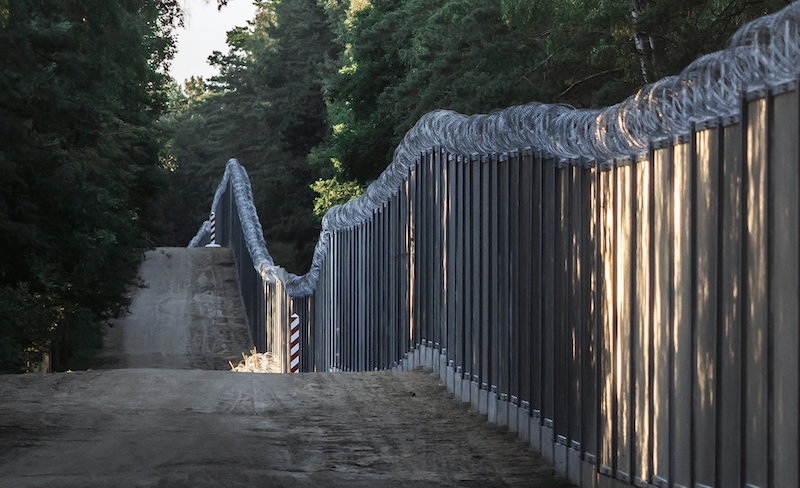
Last summer, Belarusian dictator Alexander Lukashenko ordered an elaborate operation that brought thousands of Middle-Eastern illegal immigrants to the Polish border. Could this happen again, but with the action shifting from Belarus to the Russian enclave of Kaliningrad?
The Polish government considers this quite likely. According to the Ministry of Defence, there is intelligence information that Russia is preparing a “hybrid attack” on the Kaliningrad border. However, the Ministry did not make the details public. The alleged plan is for Russia to fly planes full of immigrants from Africa and the Middle East to Kaliningrad, and then push them across the border into Poland.
For this reason, the Polish military last Wednesday started to erect a 2.5-metre-high fence with triple razor-wire along the entire 200-kilometer border with Russia – similar to the fence that the Polish government built along 186 kilometers of its border with Belarus last year.
Whether this deterred further migrants, or Belarus froze their operations, is open to debate. As is the question of whether Russia wants to carry out such an operation in Kaliningrad.
Last year, the construction of the fence further polarized the deeply divided Polish society. While the state media strongly supported the action, opponents of the fence accused the government of a lack of humanity, as more than a dozen people died of exhaustion in the Belarusian forests because the Poles refused to let them in.
Now, part of the opposition and the media are already accusing the government of propaganda. Meanwhile, the ruling Law and Justice Party (PiS) needs to mobilize the electorate ahead of next year’s elections. The higher the turnout, the more certain the party’s victory. And a migrant crisis could help bring out more voters for PiS, who consider themselves supporters of the government.
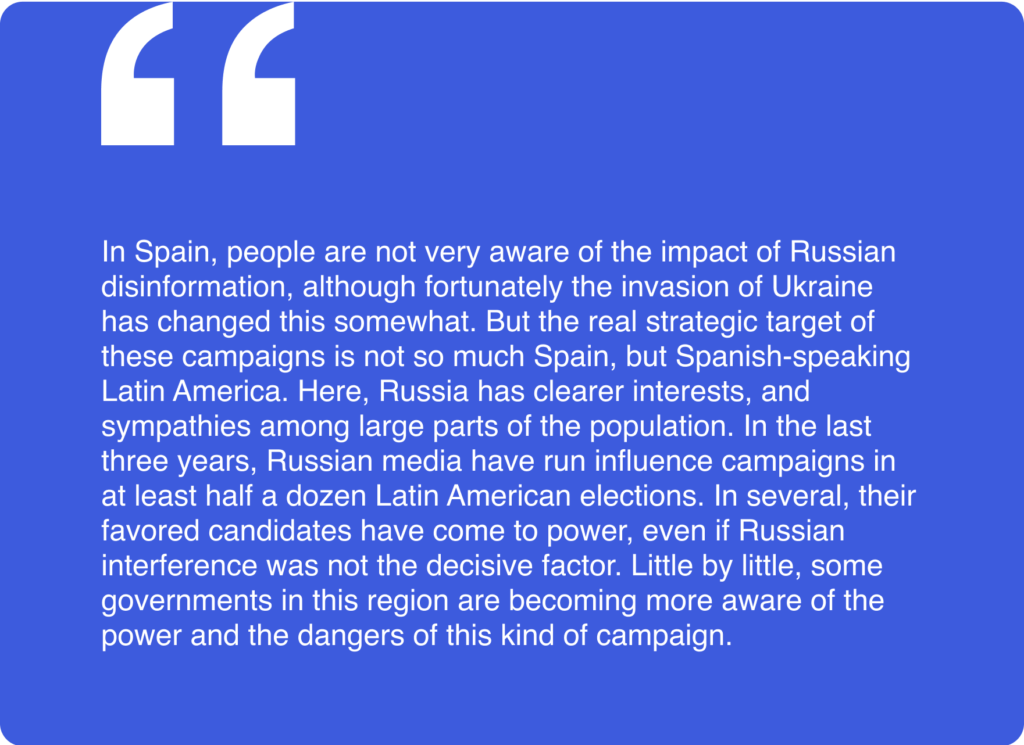
For this week’s European Focus, our colleague Alicia Allamilos interviewed a man who professionally follows Russian disinformation campaigns in Spain, and the wider Spanish-speaking world. For security reasons, our interviewee keeps his identity secret.
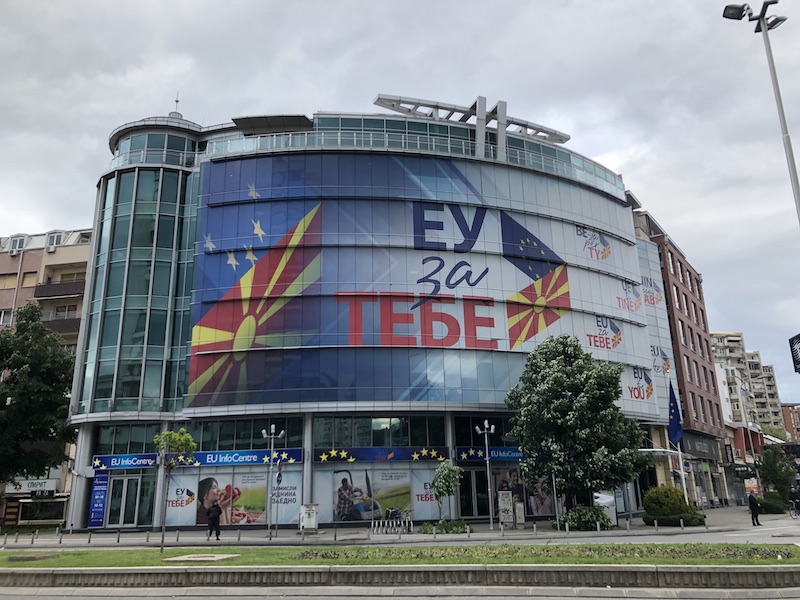
Russia’s strategic goals in the Western Balkans have long been clear. By taking advantage of corrupt local elites, the Kremlin exploits the existing ethnic divides to stoke anti-Western sentiment, further complicate the region’s already sluggish reform plans, and prevent more countries from joining the EU or NATO.
The track record includes its refusal to recognize Kosovo’s independence, a coup attempt in Montenegro and its support for separatist-minded leaders in Bosnia and Herzegovina. The recent Bulgarian blockade of North Macedonia’s EU aspirations also provides space for malign Russian influence. The same is true in Serbia, where Moscow has capitalized on continuing Serbian resentment of the 1999 NATO campaign.
However, it is not the Kremlin, but the EU that has been providing pretexts for this development for far too long.
Although the peacekeeping missions in Bosnia and Kosovo have played an important role in maintaining stability, European indecision has led to a rise in anti-Western sentiment and to doubts about the EU’s true intention to provide a way forward for the region.
Over the past two decades, Brussels has lost its focus on the region and started showing ambiguity towards its EU perspective. Unsurprisingly, this has alienated many citizens, for whom EU ideals increasingly seem like a pipe dream.
All the Kremlin had to do in the meantime was pour salt on the Balkans’ wound to make things worse.
“Russia’s strategy has been to manipulate the rifts in the Western Balkans. We would like to counter this […] And we would like to bring them closer to the EU,” a senior German diplomat told Euractiv at a meeting of countries from the region in Berlin last week.
It is time Brussels acted. Russia’s war is a wake-up call to revive the enlargement process and clarify the EU’s strategic vision. Otherwise, Europe risks losing the Balkan peoples’ mindshare and leaving its front yard vulnerable – which is dangerous for the EU itself.
Thank you for reading the 7th issue of European Focus,
What can we do to avoid falling prey to Russian interference and to maintain the strong Western unity that the Ukrainian war has triggered in us? The best way to fight such campaigns is to uncover them. And that’s our unique democratic strength, a truly open and free journalism.
If you liked what you read, please forward this email to your friends and colleagues. We also welcome reactions, feedback and suggestions for future editions!
See you next Wednesday!
Holger Roonemaa


